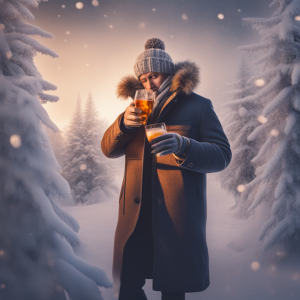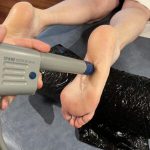Explore the Hidden Dangers of Alcohol Consumption in Freezing Winter Conditions
As we face the harsh realities of winter, particularly in extremely cold climates, our instinct to seek warmth can lead to the perilous habit of consuming alcohol. It is essential to understand the significant risks that come with this choice. This article will delve into the serious dangers tied to drinking alcohol in icy conditions, emphasizing why this behavior is not only hazardous but also ineffective for maintaining body heat. By enhancing your awareness of these dangers, you can make informed decisions that prioritize your safety and well-being during the treacherous winter months, ensuring you navigate through the cold with caution and care.
Before discussing the associated risks, it’s crucial to dispel the common myth that alcohol serves as a warming agent. Upon consumption, alcohol triggers dilation of blood vessels near the skin’s surface, creating a misleading feeling of warmth. While this sensation might seem comforting in the moment, it overlooks the essential need to maintain a stable internal body temperature. In reality, alcohol’s effects can be harmful, diminishing your ability to endure cold temperatures and significantly increasing the likelihood of severe conditions like hypothermia and other serious health issues that can arise when exposed to frigid environments.
 One of the most pressing dangers of consuming alcohol in frigid environments is the increased risk of dehydration. Alcohol is well-known as a diuretic, which means it promotes urine production, leading to significant fluid loss from the body. Moreover, the cold air typically found in winter conditions is drier, causing our bodies to lose moisture at an accelerated rate. When these factors combine, they can lead to dangerously low hydration levels, which are critical for maintaining overall health and survival. Dehydration not only negatively impacts physical performance but also impairs cognitive functions, making it increasingly challenging to think clearly and make rational decisions during critical situations where quick thinking is essential for safety.
One of the most pressing dangers of consuming alcohol in frigid environments is the increased risk of dehydration. Alcohol is well-known as a diuretic, which means it promotes urine production, leading to significant fluid loss from the body. Moreover, the cold air typically found in winter conditions is drier, causing our bodies to lose moisture at an accelerated rate. When these factors combine, they can lead to dangerously low hydration levels, which are critical for maintaining overall health and survival. Dehydration not only negatively impacts physical performance but also impairs cognitive functions, making it increasingly challenging to think clearly and make rational decisions during critical situations where quick thinking is essential for safety.
Identify How Alcohol Consumption Impairs Decision-Making and Awareness in Extreme Cold
Another significant consequence of alcohol intake is its ability to impair cognitive functions and decision-making skills. In survival situations, the capacity to make clear, rational decisions is vital for ensuring personal safety. Alcohol can cloud judgment, making it more difficult to respond appropriately to hazards that may arise in freezing conditions. This diminished capacity for reasoning can lead to accidents and poor choices, which can be particularly devastating when faced with extreme cold. Remaining alert and aware of your surroundings is crucial; however, alcohol undermines this necessity, increasing the likelihood of errors that could endanger your safety and the safety of those around you.
Furthermore, alcohol disrupts the body’s natural temperature regulation mechanisms significantly. When consumed, alcohol causes blood vessels in the skin to expand, resulting in an increased loss of heat from the body. Initially, this may create a misleading sensation of warmth, but over time, it accelerates the loss of core body heat, which is essential for survival in cold conditions. This creates a dangerous cycle where the brief feeling of warmth leads to a rapid decrease in core temperature, consequently heightening the risk of life-threatening conditions such as hypothermia. It’s crucial to grasp that while alcohol may appear to offer a quick fix for cold, it ultimately increases vulnerability to severe cold-related health risks that could have dire consequences.
Learn About the Critical Connection Between Alcohol Use and Hypothermia Risk
When discussing the grave threat of hypothermia, it’s essential to understand how alcohol consumption can obscure the early warning signs of this potentially fatal condition. Hypothermia occurs when the body’s core temperature falls below the normal range, typically below 95 degrees Fahrenheit (35 degrees Celsius). Symptoms include uncontrollable shivering, confusion, extreme fatigue, and impaired coordination. However, alcohol can suppress the body’s natural responses, making it significantly more challenging to recognize these critical indicators. By the time hypothermia symptoms become noticeable, it may be too late to avert severe injury or even fatal outcomes, emphasizing the need for vigilance in recognizing the signs and avoiding alcohol in these conditions.
In winter survival scenarios, numerous safer and more effective alternatives exist to alcohol for maintaining warmth and safety. Here are several strategies that can greatly enhance your ability to stay warm and protected:
1. Dress in Layers for Maximum Warmth: Wearing multiple layers of clothing is crucial for efficiently trapping warm air. Begin with thermal base layers, add insulating mid-layers, and complete your outfit with a windproof and waterproof outer layer to create a comprehensive protective barrier against the cold.
2. Keep Your Clothing and Footwear Dry: Moisture can lead to rapid heat loss, making it essential to keep your clothing and footwear dry at all times. Opt for waterproof materials and change into dry garments whenever necessary to help maintain warmth and reduce the risk of cold-related injuries.
3. Insulate Yourself from the Cold Ground: Using sleeping mats or insulation pads can significantly minimize heat loss, particularly during rest periods. This step is vital for conserving body heat during extended stays in cold environments, ensuring you remain as comfortable as possible.
4. Opt for Warm, Non-Alcoholic Beverages: Instead of alcohol, consider indulging in hot drinks like tea, coffee, or hot chocolate. These beverages not only provide warmth but also avoid the detrimental side effects associated with alcohol consumption, helping you stay alert and focused.
5. Seek or Build Shelter for Effective Protection: Actively locating or constructing a shelter can greatly reduce exposure to harsh winds and frigid temperatures. A well-constructed shelter is crucial for retaining body heat, significantly increasing your chances of staying warm in extreme conditions.
6. Fuel Your Body with High-Calorie Foods: Consuming nutrient-rich foods that are high in calories can provide your body with the energy required to generate heat. Foods like nuts and fatty fish are excellent sources of healthy fats that can be especially beneficial during cold weather, helping maintain energy levels and overall well-being.
Understanding the dangers linked to alcohol consumption in freezing temperatures is crucial for anyone involved in winter survival scenarios. Despite the fleeting sensation of warmth, alcohol can lead to dehydration, impaired judgment, disrupted temperature regulation, and can mask the symptoms of hypothermia. By steering clear of alcohol and embracing safe, effective strategies, we can enhance our chances of surviving and thriving in extreme winter environments. Stay vigilant, prepare thoroughly, and prioritize your safety above all else to navigate through the winter months successfully.
The post Hazards of Alcohol Consumption in Extreme Cold Conditions appeared first on Survival Bite.
The Article Alcohol Consumption Hazards in Extreme Cold Conditions Was Found On https://limitsofstrategy.com
The Article Alcohol Consumption Risks in Severe Cold Weather First Appeared ON
: https://ad4sc.com

